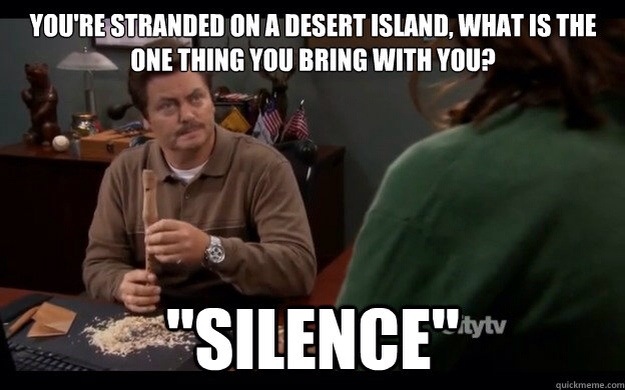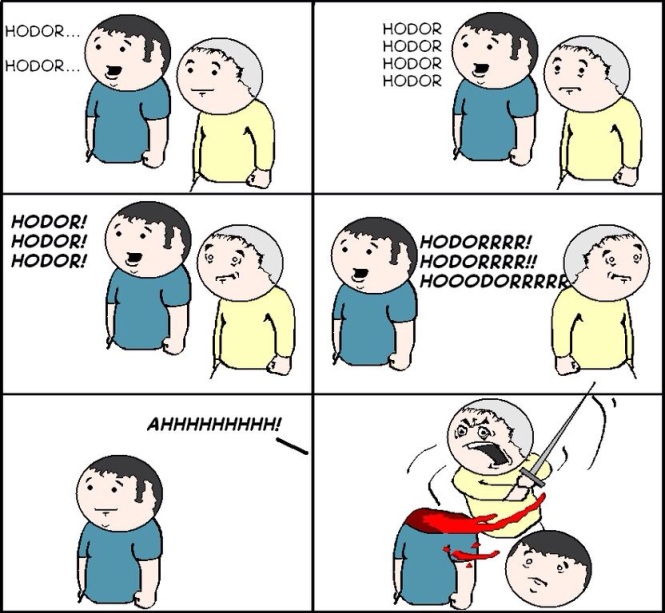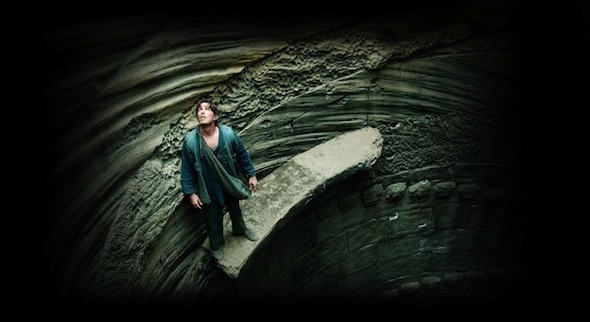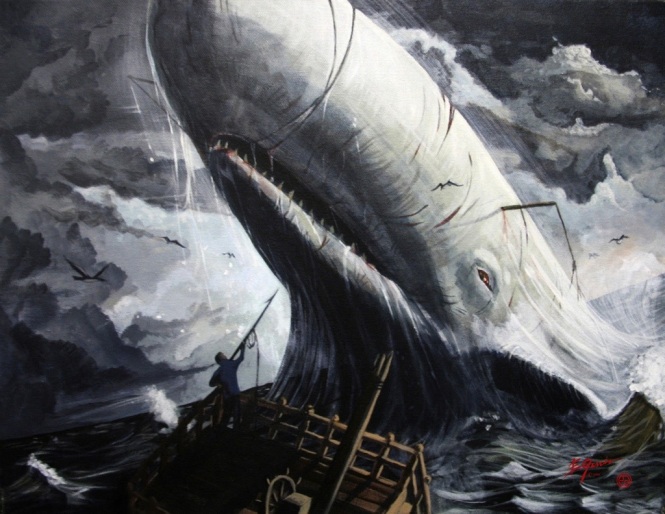Most stories begin with what Marie Robinette Kowal calls the “Gee Whiz” factor, wherein an author has a cool idea that must be honed into a functioning story. This process is common, because most writers begin with an idea they want to share.
But what if you don’t have a cool idea? What if there’s no preconceived story or character fueling the desire to write? Can you still come up with a great story without one?
These are the questions I’ve been asking of late, because I find myself dry of any engaging ideas. How does one tell a story without having a story to tell?
The thing is, I know what makes a good story (for the most part). You need to have compelling characters, conflict, and so on. Plus, if Orson Scott Card is to be believed, I already have ideas worth writing about, I just don’t know what they are yet. So, I’m going to try writing a story in a different way, by taking note of the elements I want my story to contain, and then building the details around them.
For example, let’s start with the ending. An ending should do one of two things.
A) Resolve the main conflicts of the story.
B) Open up a can of worms which will ultimately lead to the beginning of another, much grander story.
For my purposes, I like the sound of B. In this option, we end with a bang, but the outcome more-or-less opens the gates of hell rather than closing them.
An example of this would be the ending to “Game of Thrones.” In this example, we lose a main character and a king, throwing the world into chaos for all who remain, as well as the reader.
I like this idea, so that’s the direction I want to go. I still have no clue what the ending is or what it will mean to my characters (since there aren’t any), so I’ll have to keep digging.
In order to open the gates and unleash hell on my world, I’ll need something big to occur, something with dire consequences and a lot at stake. There are many things I can do, but because I want this to be a character-driven story, I like the idea of this “unleashing” to be the result of my main character’s actions.
Yes, there will be a villain, and, yes, this villain will play a key role in the outcome, but it’s the conflict in my character that brings out this dramatic turn of events. Why? Because that’s the kind of story I want to tell.
You can begin to see how my own inclinations are already starting to form a story (albeit a vague one).
So what is this conflict? What decision will my characters have to make? And what, exactly, are the consequences?
Hmm… Okay, do you remember that scene in “The Dark Knight” where Batman has to choose between saving Harvey Dent and saving the girl he loves? I remember watching it and being completely enthralled in his predicament. It’s so powerful to me because it manages to wrap up an entire lifetime of conflict in one simple, terrifying scene. Does Bruce Wayne put his own desires first and save the girl he loves? Or does he do the Batman thing and give up what matters most to do what’s best for Gotham?
His decision, which would have been powerful either way, to save Rachel works to show just how deeply he cares for her. But what happens next? Well, it’s a character-driven story, and bad guys are characters too, right? So naturally, the Joker has a trick up his sleeve. He’s given Batman the ole switcheroo and mixed up the addresses. Bruce finds Harvey Dent, Rachel dies, and the Joker is now one of my most favorite villains of all time.
I could do this. It certainly worked for me, and if there’s one thing I’ve learned about writing in all these years it’s that stealing good ideas is just part of the job.
Still, I’ll want to make it my own, and to do that I’ll need to look within and find the conflict that speaks to me. As a dad with two kids and a wife, a full-time job, a part-job, and a half-finished degree I’m working on, I’m always toeing that line between being a great dad and being that deadbeat who doesn’t have enough time for his family. This is a conflict I constantly struggle with, and one I’m sure many of you can relate to, whether your the dad, the wife who gets put on the back-burner, or the kids anxiously awaiting their pops to fill his seat at the dress recital.
So my MC will have a family, and that’s going to be a big source of conflict. My villain, whoever it may be, will use this to his gain.
Okay, I’m starting to get an idea. My MC is some sort of hero (duh). He’s vital, or else his decisions wouldn’t warrant the kind of outcome I’m hoping for. Let’s go the Batman route and give him an ultimatum. Save your family, or save the city.
Can you imagine? Our villain must be terrible.
So what choice does he make? Well, sorry folks, but if this were me I’d have to save my family. (It’s us against the world, after all.) But if we’re going the Batman route, and if our villain really is the monster I want him to be, then there has to be a twist.
Okay, whip out the flashlights cuz this is about to get dark. Our villain is going to give our hero directions to a “safe” place outside the city where his family is being kept. Only the thing is, they’re not really there. In fact, it’s all part of a bigger, nastier scheme to make our hero seem the cowardly villain!
You see, the villain is going to sack the city… with our hero’s family in it. But he can’t do that with our hero there, so he sends him on a hunt outside the city walls. Worse, when all is said and done, not only will our hero have lost the ones he loves the most, but by the beginning of our next book the entire world will believe he left the city, and his family, out of fear.
Alright, we have something. To be honest, this could be the ending to a book, but I kind of like it being the backstory instead. In this way, the readers meet our character at his lowest of lows. He’s a failed hero, a so-called coward, and he’s lost the one thing he loves the most.
Now we get to watch as this renegade with nothing to lose builds himself back up. It’s not a perfect story, but it’s an idea I’m willing to work with.






